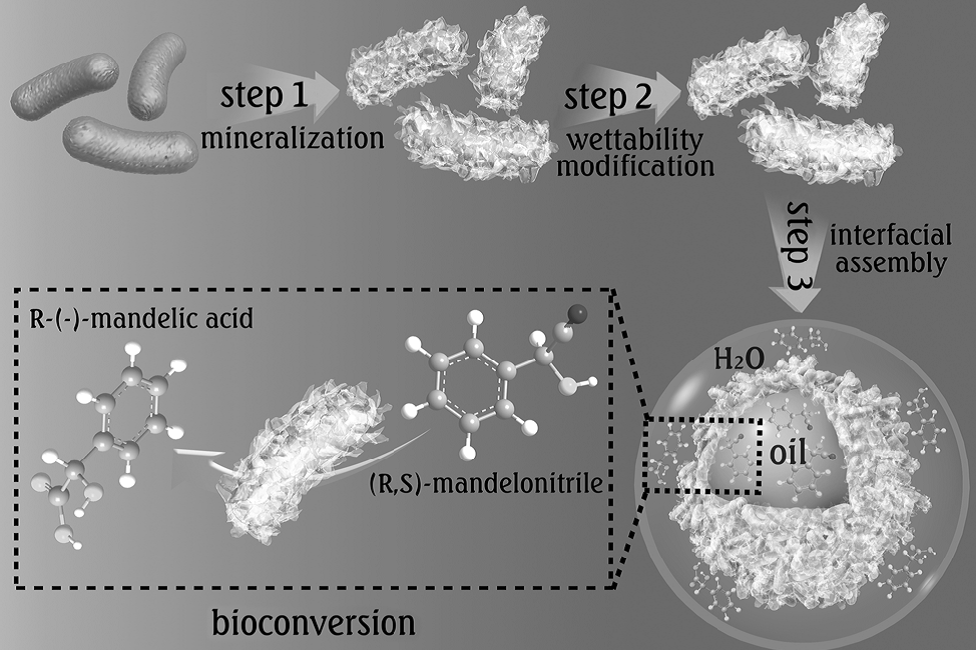任劲松课题组陈兆委同学文章被 Angew. Chem. Int. Ed.接收,文章发表在 Angew. Chem. Int. Ed. 2015, 54, 4904–4908上。
A powerful strategy for long-term and diffusionalresistance-minimized whole-cell biocatalysis in biphasic systems is reported where individually encapsulated bacteria are employed as robust and recyclable Pickering interfacial biocatalysts. By individually immobilizing bacterial cells and optimizing the hydrophobic/hydrophilic balance of the encapsulating magnetic mineral shells, the encased bacteria became interfacially active and locate at the Pickering emulsion interfaces, leading to dramatically enhanced bioconversion performances by minimizing internal and external diffusional resistances. Moreover, in situ product separation and biocatalyst recovery was readily achieved using a remote magnetic field. Importantly, the mineral shell effectively protected the entire cell from long-term organic-solvent stress, as shown by the reusability of the biocatalysts for up to 30 cycles, while retaining high stereoselective catalytic activities, cell viabilities, and proliferative abilities.


